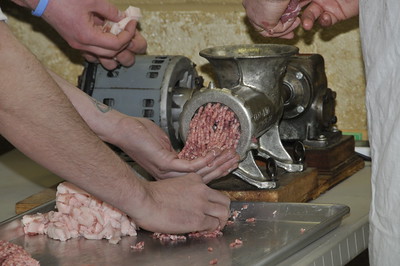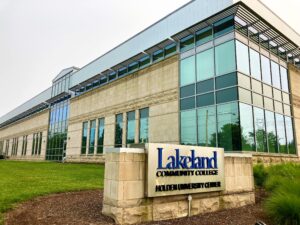What salary would a prospective employer have to offer to get you to accept a new job? Next Monday, the New York Fed will release its latest update to a periodic report known as the SCE Labor Market Update. (SCE stands for Study of Consumer Expectations.) One of the details in the Labor Market Update is something called the “reservation wage.” The reservation wage is an average figure; it describes the lowest salary offer a survey respondent would accept for a new job. Currently, the reservation wage – which the Fed last measured in November – is $73,667. That’s almost 1.1% higher than the previous reservation wage of $73,867 in July 2022.
Associate degrees typically don’t have an earning potential anywhere near the reservation wage. Usually, the highest-paying community college degree is a registered nursing degree. This is true for all Michigan community colleges except Alpena Community College. At ACC, the highest value degree is its Civil Engineering Technology program.
It’s also worth pointing out that the community college programs that produce the highest earnings are, in fact, degree programs. I say this because WCC’s strategy of cranking out certificates tends to dilute its graduates’ overall earning capacity, unless the graduate has already earned another degree.
You can visit a data site created by Wesley Whistle, which compares the median earnings of community college graduates from all 1,145 US community colleges. Whistle initially assembled the data in 2019 and most recently updated in November 2022. Using Whistle’s data, I isolated Michigan’s 28 public community colleges. Of the 115 generalized degree types in Whistle’s data, less than 35% of them had a median earning potential greater than $40,000.
Community colleges don’t aim for reservation wage jobs
Community colleges shouldn’t be places that perpetuate low-wage work. Not everyone can be – or wants to be a registered nurse. But the lack of diversity among high-earning programs is appalling. For many of Michigan’s community college, their registered nursing programs are the only ones that can crack the $40,000 earnings threshold.
There are plenty of careers that offer a high earning potential, but few Michigan community colleges have made the effort (and the investment) to design programs that can unlock these higher wage jobs. That’s a mistake. A 2021 survey published in University Business showed that nearly half of high school students think that a college degree program should take no more than two years to complete. That can largely be attributed to the significant debt most college students must take on to earn a bachelor’s degree.
Gen Z students want shorter academic programs, but they also want to earn a living wage. They’re wrestling with the conundrum that they need a bachelor’s degree to earn the reservation wage, but they’ll need to spend four-to-six years to get it. If they want to spend just two years in college, they can attend a community college, but they’ll never earn what they need to get by.
This was an opportunity that community colleges could have taken advantage of, had they been prepared. Instead of creating new, high-wage programs, they’re still trying to make a new variety of sausage using their existing course catalog.
Two year degrees + high wage jobs = increased enrollment. It’s really not that hard.
Photo Credit: Nicholas von Akron, via Flickr



















